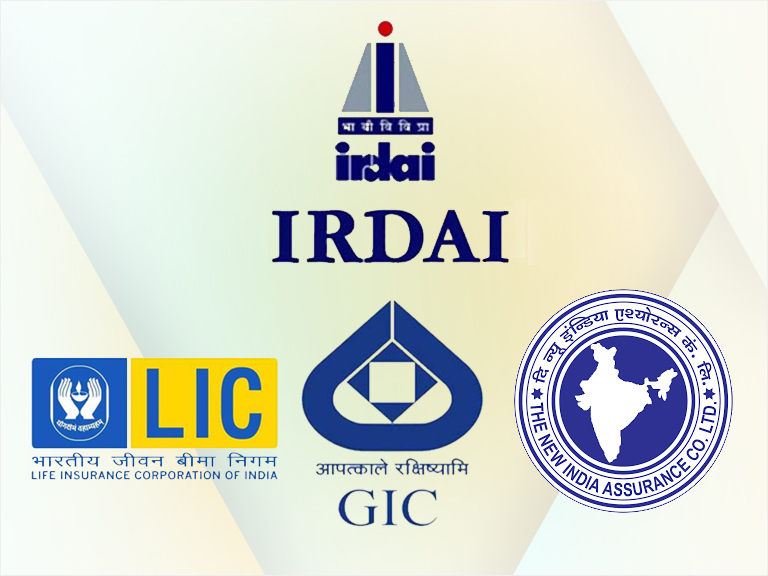The Insurance Regulator, Insurance Regulatory Development Authority of India (IRDAI) in its press release of 24th September, 2020 has notified LIC of India, GIC Re and The New India Assurance Co. Ltd. as Domestic Systemically Important Insurers (D-SIIs) for the year 2020-21. Earlier, way back in August 2015, the Reserve Bank of India, the Banking Regulator, had notified SBI, ICICI and HDFC Banks as Domestic Systemically Important (D-SIBs).
Let us understand the background, objectives and relevance of these notifications in today’s economic environment.
There is an international financial body – Financial Stability Board (FSB), based at Basel, Switzerland, which monitors and makes recommendations about the global financial system and seeks to strengthen the financial systems with a view to increase the stability of international financial markets.
It works through its members to promote international financial stability by co-ordinating with national financial authorities and international standard setting bodies as they work towards developing strong regulatory, supervisory and other financial sector policies.
This initiative of FSB gave birth to an umbrella term “SIFI” or “Systemically Important Financial Institution”, which, in addition to banks, also includes insurance companies and financial market infrastructure providers, deemed systemically important by regulators. In November 2011, the FSB announced a set of policy measures to address the systemic and moral hazard risks associated with systemically important financial institutions (SIFIs).
Keeping in view the vulnerability of Banking sector to financial crisis, it was decided to identify such banks and to come up with some solution so as to avoid failure of such banks and disruption to the essential services which they provide to the banking system and the overall economy. This led to the practice of identifying Global Systemically Important Banks (G-SIB) and Domestic Systemically Important Banks (D-SIB) by individual countries, depending on the scale and the degree of influence they hold in global and domestic financial markets. The list of such banks is published annually by respective authorities. So as of now SBI, ICICI and HDFC Banks have been designated as Domestic Systemically Important (D-SIBs) in India.
In July 2013, in consultation with the International Association of Insurance Supervisors (IAIS) and national authorities, FSB identified nine Global systemically important insurers (G-SIIs).
India, with developing economy also became a member of FSB wherein Govt. of India is represented by Secretary, Economic Affairs, RBI through Dy. Governor and SEBI through its Chairman.
Keeping in view the fact that the continued functioning of SIIs is critical for the uninterrupted availability of insurance services to the real economy, the IRDAI also set up a panel in January 2019 to identity Domestically systemically important insurers (D-SII) in India and put in place an enhanced regulatory framework for them. The committee was headed by Mr.Pravin Kutumbe, Member-Finance & Investment IRDAI.
Based on its recommendations, the IRDAI has now developed an assessment methodology for identification and supervision of D-SIIs which inter alia include the following:
1. The size of operations in terms of total revenue, including premium underwritten and the value of assets under management.
2. Global activities across more than one jurisdiction.
3. Lack of substitutability of their products and/or operations; and
4. Interconnectedness through counterparty exposure and macro-economic exposure.
Domestic Systemically Important Insurers (D-SIIs) refers to insurers of such size, market importance and domestic and global inter-connectedness whose distress or failure would cause a significant dislocation in the domestic financial system. Therefore, the continued functioning of D-SIIs is critical for the uninterrupted availability of insurance services to the national economy. Thus, they are perceived as insurers that are too big or too important to fail because of their Size, total revenue including premium underwritten and the value of assets under management.
After analysis of data, the IRDAI has identified LIC of India, GIC Re and The New India Assurance Company Ltd. as D-SIIs for the year 2020-21. Today, New India is the largest non-life insurer in India with global Premium of Rs.30,000 crs and net worth of around Rs.16000 crs. Besides a market leader in premium income, it has also been leading in accumulated reserves and net worth for several years. A truly international company which operates in 28 countries and the only financially strong PSGIC with solvency more than 2.00.
GIC Re, as the sole reinsurer in the domestic reinsurance market, provides reinsurance services to the direct general insurance companies in the Indian market. It has emerged as an effective reinsurance solutions partner for the Afro-Asian region and has started leading the reinsurance programmes of several insurance companies in SAARC countries, South East Asia, Middle East and Africa. Today its Global ranking is 11 amongst the top 40 reinsurer groups across the world.
LIC of India, the only life insurer in the public sector with assets over Rs 32,00,000 crore and total first year premium of around Rs 1,50,000 crore financially, is the largest financial institution in India.
Therefore, the size, financial strength, importance in domestic markets and the impact of failure of these insurers to cause significant disruption to the essential services they provide to policy holders and to the overall economic activity in the country, would have been at least some reasons for their identification as D-SIII .
Although as of now only three insurers have been identified as D-SIII for 2020-21 but henceforth IRDAI would identify D-SIIs regularly and disclose the names of these insurers for public information on annual basis.
D-SIIs are perceived as insurers that are ‘too big or too important to fail’ (TBTF). The expectations of IRDAI from these D-SIII will certainly go up. Now, these insurers will be required to raise the level of corporate governance and identify all relevant risk and promote a sound risk management culture and they will also be subjected to enhanced regulatory supervision. Hopefully, the enhanced supervision by the IRDAI will ensure that these companies continue to grow fast without any dislocation of services being offered by them to policy holders as well as to economy of the country.


